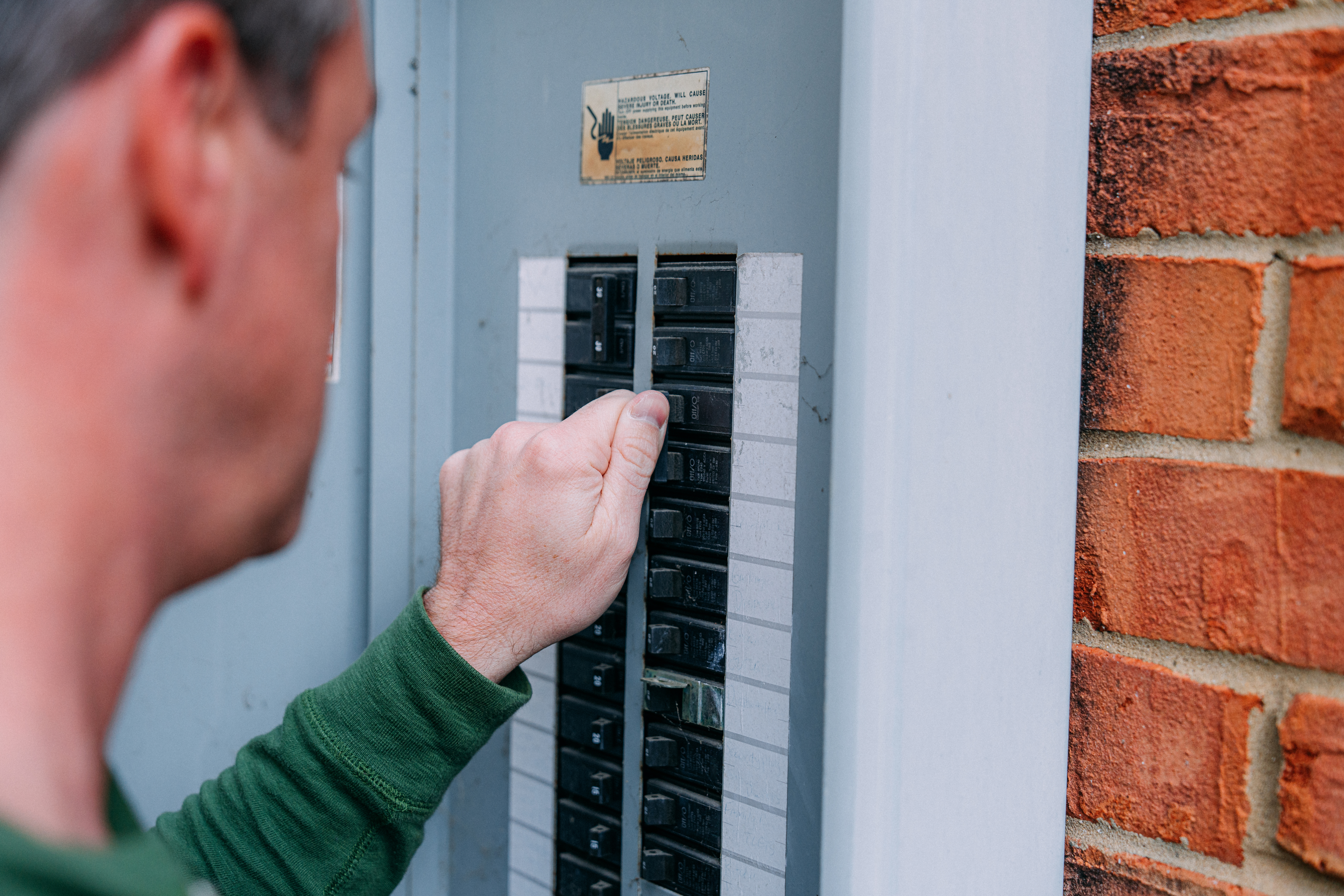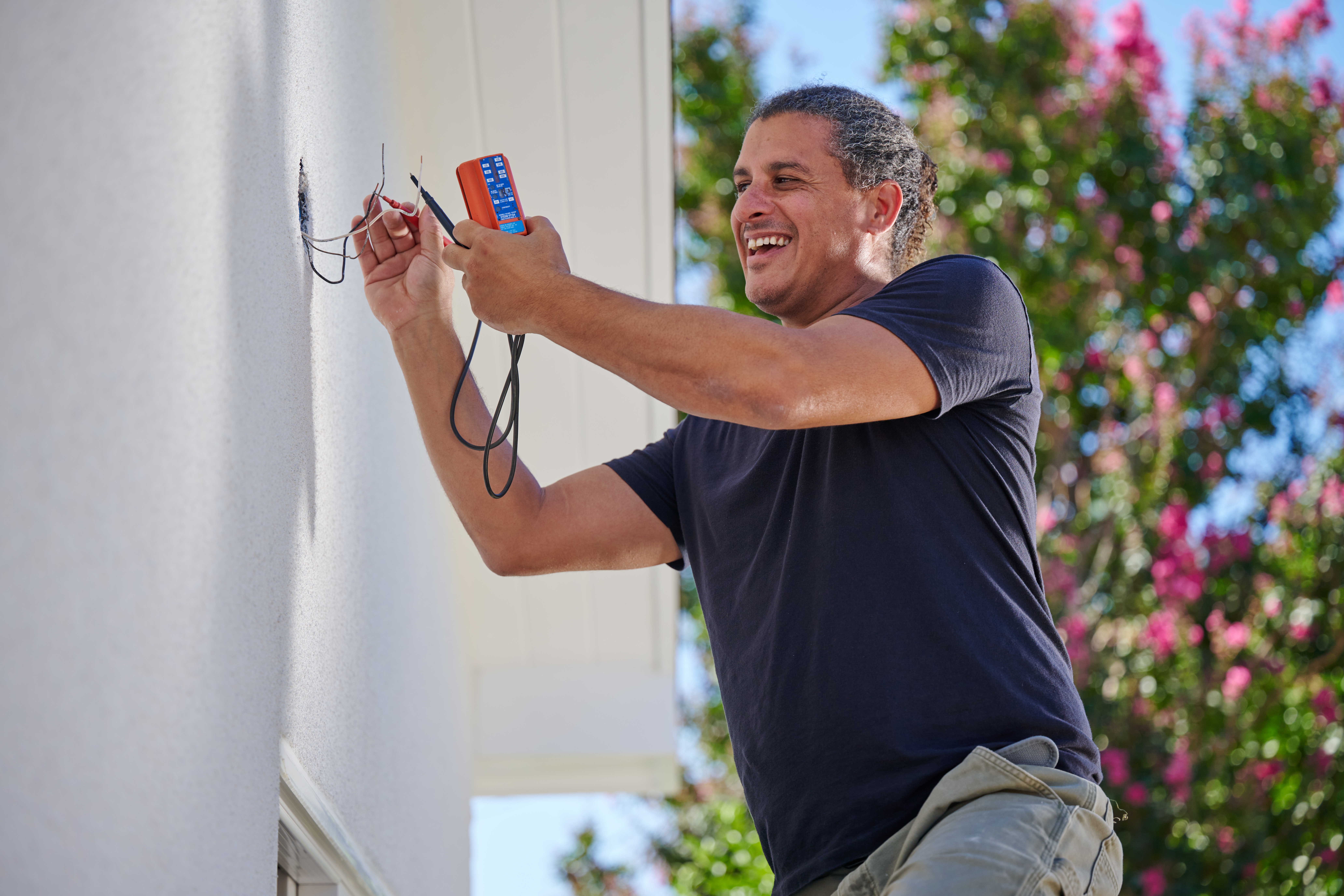
How much does electrical box replacement cost in Columbus, Ohio? Learn why this city may be more affordable and what factors the price.
The cost to rewire a house in St. Louis is $1,160 on average, but it can range between $526 to $1,808 or more.


Older St. Louis homes with knob and tube wiring will cost more to rewire than houses with modern electrical systems.
Upgrading an electrical panel can yield a 53% ROI in St. Louis.
The cost to hire an electrician in St. Louis is around $310, but costs range between $150 and $470, depending on the size and scope of the project.
The average rewire house cost in St. Louis is $1,160, but prices range between $526 and $1,808 or more. The city of St. Louis is centuries old, rich in history, and offers a diverse range of home styles. Those with older homes may have electrical systems that require upgrading, which often consists of rewiring the entire house.
The price you can expect to pay out of pocket depends on several factors, including the age and size of your home. Let’s explore the main factors that affect the price and whether rewiring your St. Louis home can increase its value.
Rewiring a home is no small task, and the final price tag of the job will depend on factors such as the complexity of the installation, along with the size and age of your house. On the extreme low end, a simple rewiring task is about $135, but rewiring an entire home can cost $2,800 or more.
The size of your home will significantly impact the rewiring cost. Larger houses will require more materials and labor hours. According to the Federal Reserve Bank of St. Louis, the median-sized home in this city is 1,840 square feet.
Rewiring a house costs approximately $2 to $4 or more per square foot. Here is a breakdown of the average cost based on square footage:
| House Size in Square Feet | Cost Range |
|---|---|
| 1,000 | $2,000–$4,000 |
| 1,500 | $3,000–$6,000 |
| 2,000 | $4,000–$8,000 |
| 2,500 | $5,000–$10,000 |
| 3,000 | $6,000–$12,000 |
The age of your house will also determine the cost of rewiring it. St. Louis has a significant number of older homes, with some 100 years old or more. In fact, Flounder houses and Row houses are among the 19th and 20th century homes found in St. Louis. These types of homes may have outdated wiring systems, such as knob and tube wiring or aluminum wiring.
Rewiring a house with knob and tube wiring will drastically increase the price because it is labor-intensive, and the rest of your electrical system, such as the panel, outlets, and switches, will also need upgrading. The average cost to rewire a house with knob and tube wiring is between $12,000 to $36,600 or more. However, this type of system is outdated and poses potential safety problems, which can lead to your homeowner’s insurance policy being canceled.
It’s best to have a qualified electrician upgrade your home to a modern electrical system that's safer and compliant with current codes.
Like other electrical projects, the type of materials and wire used will influence the price. If electrical outlets, switches, and other components need updating, that will add to the cost. The type of wiring that the professional will use depends on location and environmental factors.
| Wire Type | Cost per Linear Foot | Pros | Cons |
|---|---|---|---|
| NM-B Wire | $0.94–$1.24 | Good for updating older homes and cost-effective | Suitable for indoor use but not outdoors |
| UF-B Cable | $1.16–$2.98 | Moisture and corrosion resistant and can be directly buried into the ground | Can be difficult to repair |
| THHN/THWN Wire | $0.24–$2.28 | High heat resistant and durable | Moisture sensitivity |
It’s not shocking that the complexity of the job determines how much you can expect to pay to rewire a house. For instance, older-style homes in St. Louis, such as row houses, can be more difficult to rewire because they often have shared walls and complex layouts. Some homes may also have lath and plaster walls, which can make it more challenging to access wires.
For instance, upgrading a home with knob and tube wiring would be significantly more complex than upgrading a house with a more up-to-date electrical system.
Rewiring a house in St. Louis will require a permit from the city. An electrical permit usually ranges between $50 and $300, and the post-job inspection is usually included in the price. It's best to ask the electrician if all permit and inspection costs are included in the quote they provide.
There is the potential for additional costs when having a home rewired. For example, if the panel needs to be relocated or upgraded to a higher amperage, that can add to the price. Outlets, switches, and other components may also need to be upgraded to support modern appliances if the entire system is outdated.
Here are the additional costs that you may need to incorporate into your budget:
Relocating electrical panel: $1,500–$4,000
Upgrading electrical panel: $1,200–$2,000
Install or Replace Outlet: $100–$450
Install Light Fixture: $198–$1,444
Hiring an electrician in St. Louis costs around $310, but the range is between $150 and $470 or more. The average hourly rate for an electrician ranges from $50 to $130 per hour, depending on their skill set and level of experience.
The hourly rate for a standard licensed electrician is between $60 and $90 per hour. However, a master electrician charges between $90 and $120 per hour. They typically command a higher rate because they have the highest level of expertise and can tackle complex jobs.
Rewiring your St. Louis home can potentially boost its value and make it more marketable to potential buyers, especially if it has an outdated electrical system. Although home values are increasing in St. Louis and the real estate market is competitive, outdated wiring can potentially deter buyers from bidding on your house.
A home that has updated wiring offers increased electrical capacity, enhanced safety features, and reduces the risk of fires. There isn’t a specific dollar amount for the return on investment you will earn by having your home rewired, but even upgrading an electrical panel can yield a 53% ROI.
Home is the most important place on earth, which is why Angi has helped more than 150 million homeowners transform their houses into homes they adore. To help homeowners with their next project, Angi provides readers with the most accurate cost data and upholds strict editorial standards. We survey real Angi customers about their project costs to develop the pricing data you see, so you can make the best decisions for you and your home. We pair this data with research from reputable sources, including the U.S. Bureau of Labor Statistics, academic journals, market studies, and interviews with industry experts—all to ensure our prices reflect real-world projects.
Want to help us improve our cost data? Send us a recent project quote to [email protected]. Quotes and personal information will not be shared publicly.
From average costs to expert advice, get all the answers you need to get your job done.

How much does electrical box replacement cost in Columbus, Ohio? Learn why this city may be more affordable and what factors the price.

How much does adding an electrical outlet cost in Columbus? Get details on average pricing, permit needs, and what affects the total cost.

Ring a bell? From replacing a wired doorbell to setting up a smart home system, learn about typical doorbell installation costs, including materials and labor.

Exposed electrical wires present a serious hazard and it’s crucial to cover them properly. Find out how to cap off electrical wires safely and securely.

If your light switch won’t turn off, try these troubleshooting tips to identify the problem before contacting a local electrician.

When it comes to precise measurements, you need a precise tool. A micrometer can definitely come in handy, so learn how to read a micrometer here.